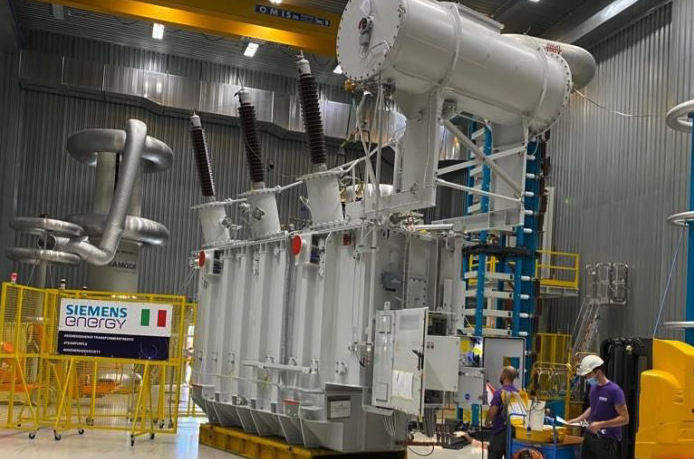- The delivery of Nigeria’s US$64 million mega transformers has reignited hopes for a more stable energy sector for the country.
The mega transformers ordered by the government under the Presidential Power Initiative (PPI) have successfully undergone a factory acceptance test. The Federal ministry of power stated that the first batch of the shipments, which are made at the Siemens transformer factory in Trento, Italy, would start arriving in Nigeria from September this year.
Isa Sanusi, a media aide to the Minister of Power, noted that the acceptance test had paved the way for Siemens Energy to start delivering the transformers to Nigeria.
The development comes after Minister of Power Abubakar Aliyu led a delegation to Germany in April, where he paid visits to Siemens Energy factories in Berlin and Frankfurt, and held meetings with the senior leadership of Siemens Energy.
He engaged the company on the need to fast-track the delivery of the early orders that it said would kick-start the transformation of Nigeria’s energy sector.
“The successful factory acceptance test shows Nigeria’s engagement with Siemens Energy is on track. It also shows the federal government’s commitment to addressing Nigeria’s energy challenges,” said the minister.
In December 2021, the Minister of Finance, Zainab Ahmed and Aliyu secured the approval of the Federal Executive Council (FEC) for $64 million for the procurement of equipment to boost power supply under the Presidential Power Initiative.
The first phase is expected to provide 10 mobile power substations and 10 mega transformers that will be deployed across the country to boost and stabilise electricity supply, the government
The first phase of the PPI seeks to modernise, rehabilitate and expand the national grid by investing in the electricity value chain, including generation, transmission and distribution systems.
The project will provide power to Nigerians in three phases of 7,000MW, 11,000MW and 25,000MW between now and 2025 under the federal government’s initiative to supply reliable power to the national grid.
Author: Nomvuyo Tena
Nomvuyo Tena is a Content Producer at Vuka Group and is as passionate about the energy transition in Africa as she is about music and Beyonce.
This article was originally published on ESI Africa and is republished with permission with minor editorial changes.
















